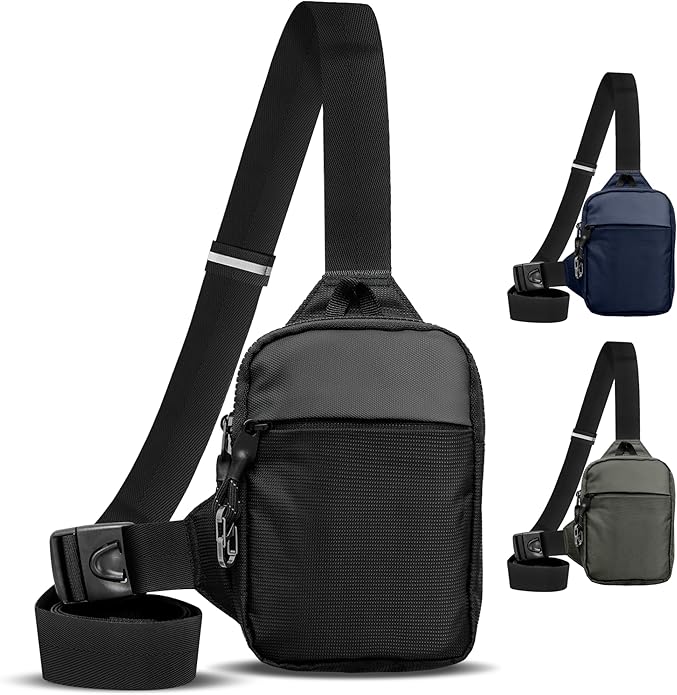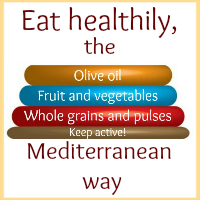Olive Oil Benefits
- why it's important to buy the best
Olive oil benefits.
The health benefits of olive oil are well evidenced. We look at what they are, and why it's important for your family's well-being to use it every day.
Know all about the benefits and want to go straight to how to make sure you buy and store a good quality oil? Use this link.
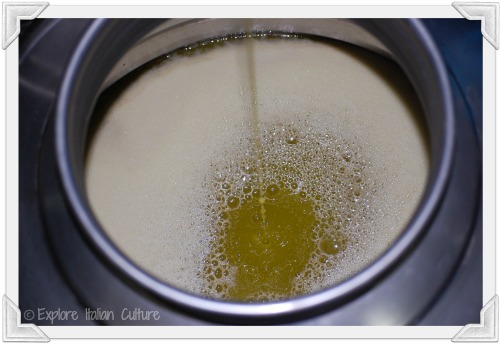 Green gold! - Our own frothing olive oil coming off the press.
Green gold! - Our own frothing olive oil coming off the press.
Anti-Theft Travel Sling Bag for Men & Women
This compact travel bag is designed with secure zipper locks to keep your essentials safe. It holds more than you think and stays secure and comfortable throughout commutes or travel days.
As Amazon associates we earn a small commission on any sales.
Italian olive oil benefits age!
Of all developed countries, people from Italy are amongst the longest lived. The average age Italian women live to is 83; for a man it lowers to 77.
In our own region of Le Marche it gets even better: women live till 84 and men, 78.
Add to that the fact that obesity in Italy is very low - only 8% of the population would be classed as clinically obese as opposed to 31% in North America, 23% in the UK and 13% even in other Mediterranean countries such as Spain and Malta.
Why?
Olive oil, the Mediterranean diet and heart disease
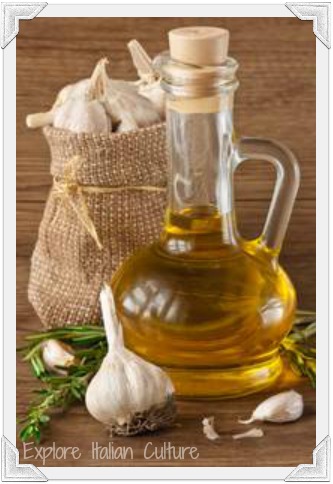 Two staple ingredients : olive oil and garlic.
Two staple ingredients : olive oil and garlic.In the 1950s, a scientist called Ancel Keys noticed that people from Mediterranean regions lived longer and were generally far healthier, with a much lower incindence of heart disease, than people from other countries. He decided to carry out a study to find out why.
He discovered that one of the major differences between the Mediterranean diet and other diets was the use of olive oil above any other type of oil (including other vegetable oils) - in cooking, baking, dressings and spreads.
And that remains true to this day.
Italian olive oil benefits quality of life!
It's not just about surviving to a great age though - it's all about quality of life, too.
It's not unusual in Italy to see people in their 60s and 70s clad in Lycra riding their racing bikes up and down the 15% gradient hills. Nor is it unusual to see men and women in their 80s and 90s working on the land, and walking miles up and down hills to the shops.
It's not all about olive oil - a diet including fresh, locally grown food and exercise as a part of life, is an important part of the equation too.
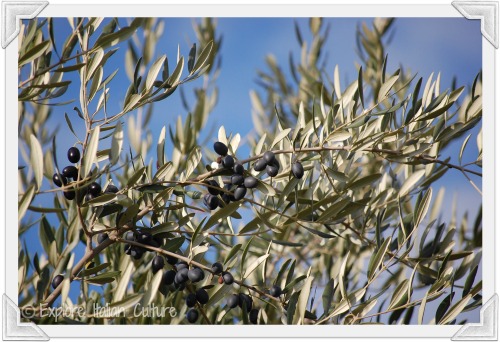 Our eating olives - full of oily goodness!
Our eating olives - full of oily goodness!But the presence of olives and olive oil has been one of the key constant factors in every study done since that original Keys' work. Don't underestimate it!
Italian olive oil benefits health
A wide range of international studies (see for example 'Diet, nutrition and the prevention of chronic diseases : report of a WHO study group') have shown the health benefits of olive oil in helping to reduce the incidence of heart disease and some cancers.
So why does olive oil have so many health benefits?
Because it's rich in mono-unsaturated fatty acids and, especially in the case of extra virgin olive oil, has extremely high levels of antioxidants which are known to be critical in the body's ability to fight the development of, for example, cancerous cells.
Other research has shown that the anti-inflammatory qualities of extra virgin olive oil can help with the treatment of common illnesses such as high blood pressure, asthma, diabetes and arthritis.
How to make the most of olive oil benefits?
It's easy!
- When buying olive oil, check its colour. Buy as green an oil as you can afford. The greener it is, the fresher and more likely to be pressed by traditional methods.
- Only buy oils stored in a dark glass or stainless steel container.
- Check the words. Look for 'extra' or 'extra extra' virgin, and 'cold stone pressed'.
- Check the label. If it says 'oil from a variety of countries' or similar, the oil is blended and not necessarily healthily pressed.
- Make sure you store it in cool, dark conditions - it deteriorates less quickly.
- See our page on storing olive oil for more detailed information.
Want to know more about where olive oil fits into a healthy Mediterranean diet? Click on the pic below!
Sources for the medical information contained on this page are the World Health Organisation and the Organisation for Economic Co-Operation and Development.
Please note: we are not medically qualified and we do not offer medical advice. The information contained here is validated by the World Health Organisation and is given in good faith as general advice only.
